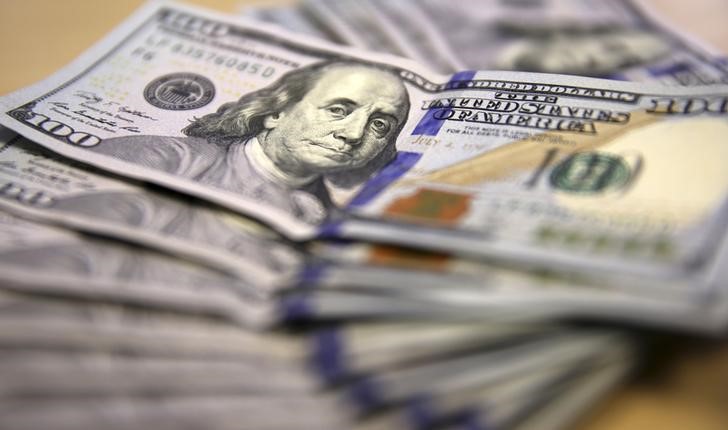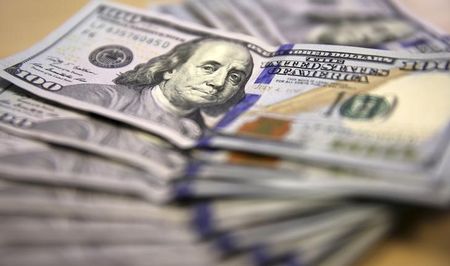 © Reuters.
© Reuters.
By Peter Nurse
Investing.com – The dollar continues to lack friends in early European trade Thursday, with optimism over the rollout of vaccines and talk of new U.S. fiscal stimulus prompting risk-on trades.
At 3:55 AM ET (0755 GMT), the Dollar Index, which tracks the greenback against a basket of six other currencies, was down 0.2% at 90.925, trading around levels last seen well over two years ago.
EUR/USD climbed 0.1% to 1.2124, at levels not seen since April 2018, even with the European Central Bank widely expected to enhance its quantitative easing next week.
USD/JPY fell 0.1% to 104.38, while the risk-sensitive AUD/USD climbed 0.2% to 0.7428, its highest level in more than two years.
Optimism over U.S. stimulus talks and bets on a successful roll-out of vaccines are leading traders to take bets on global growth and thus riskier currencies at the expense of the safe haven dollar, the world’s reserve currency, particularly with the Federal Reserve committed to keeping rates low for years.
This move lower in the dollar has occurred despite the latest employment data showing a slowdown in the jobs recovery, with Wednesday’s monthly ADP report showing private payrolls grew at their slowest pace since July in November.
Weekly initial jobless claims data will be studied later Thursday to see if they provide a similar picture ahead of Friday’s official employment report.
“Data is clearly playing second fiddle to vaccine and stimulus news. Markets may retain an upbeat stance on the latter for now as bipartisan talks resume, providing further support to risk assets and reinforcing the bearish dollar argument,” said analysts at ING, in a research note.
Elsewhere, GBP/USD gained 0.2% to $1.3385, remaining close to a three-month high. Sterling received a boost Wednesday as the U.K. approved a Covid-19 vaccine developed by Pfizer (NYSE:PFE) and BioNTech and said it would start vaccinating those most at risk early next week. However, the focus remains on the Brexit trade deal talks.
France warned Wednesday it could veto a trade deal between the U.K. and the European Union if it doesn’t like the terms of the deal, an intervention that puts pressure on EU negotiator Michel Barnier not to give too much ground.
Over the past month, the number of short bets against sterling has increased, according to data by the U.S. Commodity Futures Trading Commission, suggesting the downside potential is quite large, should the two sides fail to agree a deal.
Leave a comment
